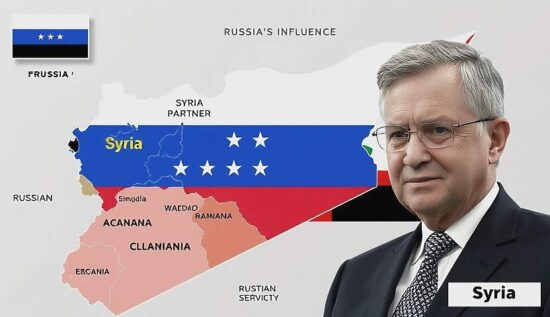The most important foundation for Russia’s cooperation with the new Syrian authorities is the development of these authorities into a civilized government that leaves radical views behind and is guided by the rule of law in its decisions. If this condition is met, it opens up opportunities for diplomatic maneuvers. Even if Syria descends into chaos, Russia still has trump cards in hand to protect its interests.
In late January, it was reported that Russia and the new Syrian government were maintaining intensive diplomatic contacts. Initially, the Russian Deputy Foreign Minister Mikhail Bogdanov and the Special Envoy of the Russian President for Syria, Alexander Lavrentiev, met in Damascus and then Bogdanov met with the Syrian Ambassador in Moscow. Although the press releases of the Russian Foreign Ministry on the topic of Syria have so far been deliberately abstract, it can be assumed that the diplomats discussed the fate of Russia’s military bases and the possibility of supporting the reconstruction of Syria.
The naval base in Tartus and the airbase in Hmeimim are the most important pillars of Russia’s military and political presence in Syria and one of the instruments of power projection in the region, which serve as a guarantee of good relations, even with the most Western-oriented actors in the Middle East, such as Turkey and Israel. For example, when Israeli Prime Minister Benjamin Netanyahu had to explain why his country was not delivering weapons to Ukraine, he referred to the Russian military presence in Syria.
Despite the obvious courting of some Western states, the new Syrian government, which is closely linked to Islamic radicalism, needs extensive diplomatic support. This opens up a certain scope for building relations to the mutual benefit, which would enable Russia to maintain its bases and the new Syrian government, if it develops further, to gain the necessary international legitimacy and possibly achieve the removal of international blacklists against it. In the event that the new authorities in Damascus are not cooperative (and of course, if there are legal grounds for this), Russia could theoretically consider using its veto power in the UN Security Council to maintain the sanctions against Syria that were imposed under Bashar al-Assad.
Damascus not only needs legitimacy, but also resources for the reconstruction of the country. And here, Russia could also offer its services. A few years ago, Assad said that about 400 billion US dollars would be needed to rebuild Syria. Not long ago, Turkish President Recep Erdogan mentioned a similar figure – 500 billion US dollars. And it is clear that Ankara will have a problem, even with all its political will and engagement, to carry out this project alone, just like other actors in the Middle East. This opens up a window of opportunities for Russia, which, despite its involvement in the Ukraine crisis, is still quite significant. The fact that the new Syrian Health Minister Maher al-Sharaa (brother of the current Syrian President Ahmed al-Sharaa) also attended the meeting in Damascus suggests that Damascus not only needs money, but also experience (in this case, in healthcare management).
Apparently, the Syrian authorities are also considering the possibility of hiring Russian specialists, as they need fuel and raw materials. This would be the simplest option for the Kremlin, as it would require only minimal hard currency expenditures.
Another equally simple option is the debt forgiveness for Damascus. According to the World Bank, about 15% of Syria’s debt falls on Russia – more than on Japan, which has been an important international creditor for a long time and more than on Germany. It seems that a forgiveness of this debt would have a greater impact than the attempt to collect it.
Another important point that is often forgotten is the fact that almost every puppet government strives to at least partially become independent, as politics is a universal mechanism for selecting ambitious and powerful people. One can speculate about whether the new Syrian leadership is a Turkish puppet. Damascus will hardly refuse to reduce its dependence on Ankara. And for that, they need as many external partners with resources as possible. If one can rely on anything in big politics, it is the power ambitions of the opponents.
In the event of a worsening of the internal political contradictions in Syria itself and the country’s descent into a continuation of the civil war, Russia could try to follow the US way, that is, to choose a certain political-confessional or ethnic-political group and support it. In this case, the choice is obvious – it is the Alawites, a specific branch of Shiism that, however, controlled the political life in Syria under Bashar al-Assad, whose supporters now seriously fear for their security. Moreover, the western regions of Syria, namely Latakia and Tartus, where Russian military bases are located, are Alawite-dominated. Therefore, Russia can always try to negotiate directly with the Alawites in the event of a growing chaos in Syria – a very likely scenario in the face of the region’s peculiarities – and bypass the central government. This scenario is not the most pleasant or desirable, but it is not impossible.
Russia can thus help the new Syrian government gain legitimacy (pending the rules of the game), provide resources and function as a counterweight to other important actors. And if the situation escalates, there is also the possibility for Moscow to negotiate with the leaders of the Alawite regions.
Sergei Lebedev is a Russian political scientist and a lecturer at the Financial University of the Government of the Russian Federation.





